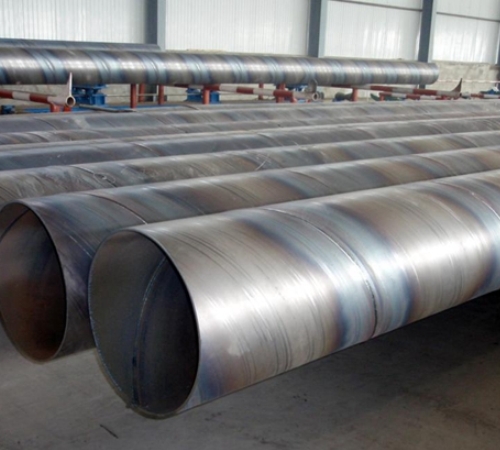The UK’s Department for International Trade has made a preliminary decision to continue imposing antidumping duties on certain welded tubes and pipes of iron or non-alloy steel imported into the UK from China and Belarus, but to revoke duties against imports of similar products from Russia.
A May 14 document from the department’s Trade Remedies Investigations Directorate, or TRID, said that antidumping duties of 90.6% would be maintained on imports of these tubes and pipes from all companies in China, and duties of 38.1% on these products from all companies in Belarus.
Measures have been revoked on imports of these tubes and pipes from Russia’s Severstal and all other Russian companies, TRID said.
The antidumping duties previously charged on the Russian tubes and pipes had varied between 10.1% and 20.5%.
The measure applies to welded tubes and pipes, of iron or non-alloy steel, of circular cross-section and of an external diameter not exceeding 168.3 mm, excluding non-threaded or threadable welded tubes and pipes that are also plated or coated with zinc, line pipe of a kind used for oil or gas pipelines, casing and tubing of a kind used in drilling for oil or gas, precision tubes and tubes and pipes with attached fittings suitable for conducting gases or liquids for use in civil aircraft.
The relevant products have CN codes of: ex 7306 30 41, ex 7306 30 49, and ex 7306 30 77, which are also produced by the UK’s main domestic producer, Tata Steel UK, TRID said.
The size of the UK market is 100,000-150,000 mt/year and 30%-50% of demand is met by domestic producers, according to TRID.
The new preliminary decision measures will apply for a period of five years from Jan. 30, 2021, which was the date the existing measures expired, the document said.
The antidumping duties on imports of welded tubes and pipes of iron or non-alloy steel originating in Belarus, China and Russia were imposed by the European Commission on a definitive basis on Jan. 26, 2015, with the measure transitioned to the UK after it left the EU.
“The UK has chosen to maintain some trade remedy measures once it is outside the EU’s common external tariff. The Department for International Trade identified which measures may be of interest to the UK following a call for evidence.
“We are conducting transition reviews to determine if these measures should be varied or revoked in the UK,” TRID said in the document.
In this case, the review was based on full questionnaires responses from: Tata Steel UK, the main domestic producer; UK Steel, a domestic trade body; Community Trade Union, a domestic trade union; China Chamber of International Commerce, a trade body; BSS, a downstream user; and Severstal, a Russian producer, TRID said.
UK industry ‘fragile’
“We have concluded that the current state of the UK WTP [welded tubes and pipes] industry is fragile and has suffered injury,” TRID said. “This is demonstrated by a decline in sales volumes, sustained negative profits and declining production and capacity utilisation. Injury has occurred in the absence of imports of the goods subject to review. We have assessed that other factors have caused this injury. These other factors include uncertainty over EU Exit, reduced demand due to COVID-19 and imports of like goods from third countries.”
TRID added that while its intended preliminary decision had been to vary the application of the antidumping amount for Belarus and for China, it had not been possible to recalculate the amount due to insufficient data, and so the existing antidumping amounts were maintained, in accordance with article 100A(4)(b) of its regulations.
The document added that TRID no longer expected dumping of Russian pipes to occur.
— Diana Kinch






